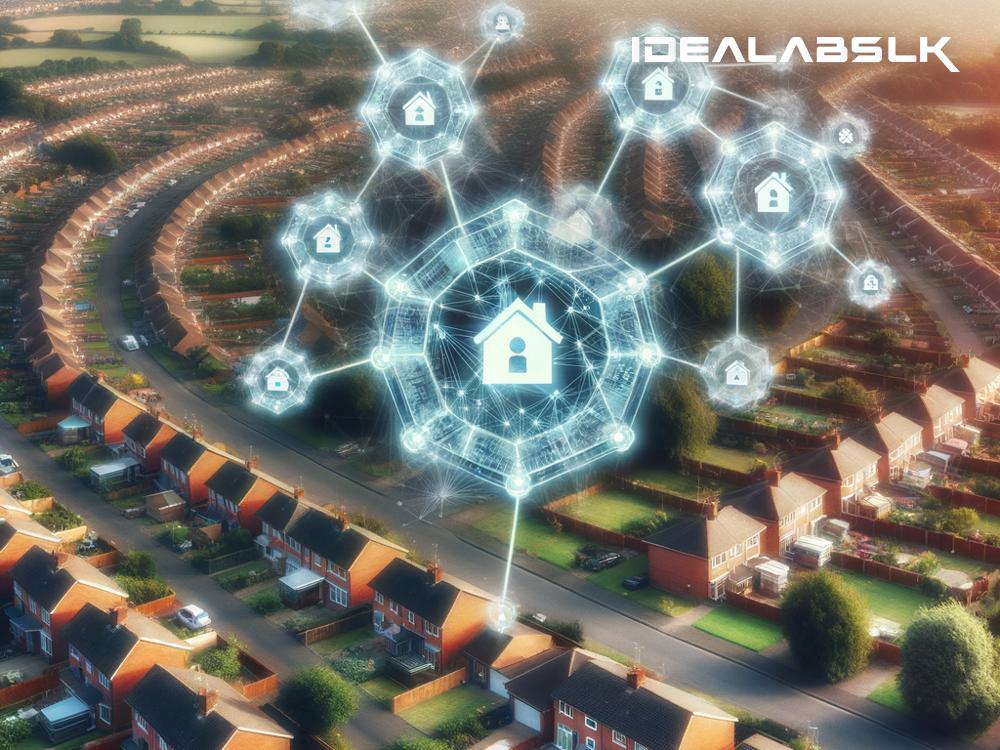Blockchain for Real Estate: Transforming Title Search and Verification for Everyone
In the intricate world of real estate, one of the most critical steps before buying property is ensuring the title (which proves ownership) is clear and accurate. Traditionally, this process is time-consuming, often fraught with errors, and can be expensive. But what if there was a way to make this process quicker, more transparent, and secure? Enter blockchain technology. Let's explore how blockchain is revolutionizing title search and verification in real estate.
Understanding the Basics: Blockchain and Real Estate
First off, it's essential to demystify what blockchain is. Imagine a digital ledger or record book that's not stored in one single place but duplicated across a network of computers. Every time a new entry is made, it's recorded on every copy of the ledger in the network, making it nearly impossible to tamper with. This is the core principle behind blockchain.
Now, apply this to real estate, where each property's title history, including past transactions and ownership details, is recorded in a traditional ledger. By moving these records onto a blockchain, everyone involved – buyers, sellers, lawyers, and government authorities – can have a more accessible, transparent, and secure way to verify property titles.
Speeding Up Title Search and Verification
Traditionally, conducting a title search involves sifting through public records, which could span decades, to confirm the property's legal ownership, ensure there are no liens against it, and verify that the seller has the right to sell it. This process can take weeks and is susceptible to human error, given the amount of paperwork and manual verification involved.
Blockchain simplifies and accelerates this process. Since every transaction involving the property would be recorded on the blockchain, anyone could instantly access its entire history with a few clicks. This immediate accessibility drastically reduces the time needed for title searches from weeks to mere minutes.
Enhancing Security and Transparency
One of the blockchain's hallmark features is its security. Once a transaction is recorded on the blockchain, altering it is virtually impossible without consensus from the majority of the network. This makes fraud significantly harder to commit. For real estate, this means a dramatic reduction in title fraud, where scammers forge documents to claim ownership of properties unlawly.
Moreover, blockchain's transparency ensures that all parties have access to the same information, reducing disputes over titles’ authenticity. Every transaction is traceable, permanent, and public (while keeping personal information secure), fostering trust among parties involved.
Reducing Costs and Eliminating Middlemen
Blockchain can also reduce the costs associated with title search and verification. Today, these expenses, including fees for title searches, insurance, and potential legal costs, can add up. By streamlining the verification process, blockchain can reduce the need for extensive checks and balances currently performed by various intermediaries, passing the savings onto buyers and sellers.
Additionally, the decentralized nature of blockchain minimizes the need for middlemen such as title companies, which typically oversee these transactions. By facilitating peer-to-peer transactions, blockchain could potentially transform the role of these traditional intermediaries, or even remove the need for them altogether.
Real-World Applications and Challenges
Several startups and pilot projects are already exploring blockchain for real estate title management. Countries like Sweden, Georgia, and the United States have begun experimenting with blockchain for recording real estate transactions and titles. These early adopters highlight blockchain's potential to make property transactions more straightforward, efficient, and accessible.
However, implementing blockchain in real estate is not without its challenges. Issues such as regulatory frameworks, establishing a comprehensive global or national blockchain for real estate, and ensuring the digital accuracy of physical property boundaries are significant hurdles to overcome. Moreover, widespread adoption requires buy-in from government entities, real estate professionals, and property owners, who must be willing to adapt to this new technology.
Looking Ahead
Blockchain's potential for improving title search and verification is clear: it offers faster, secure, and more transparent transactions, benefiting everyone involved in real estate dealings. While there are challenges to its implementation, the ongoing pilot projects and growing interest in blockchain technology suggest a promising future.
As we move forward, the real estate industry stands on the brink of a technological revolution that could redefine how property ownership is established and transferred, making it more accessible, reliable, and efficient for generations to come. With continued innovation and collaboration, blockchain could soon become the new foundation of real estate transactions worldwide.

